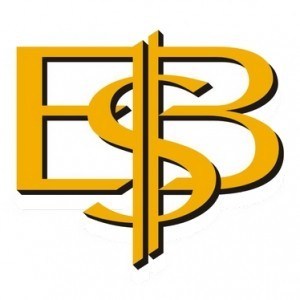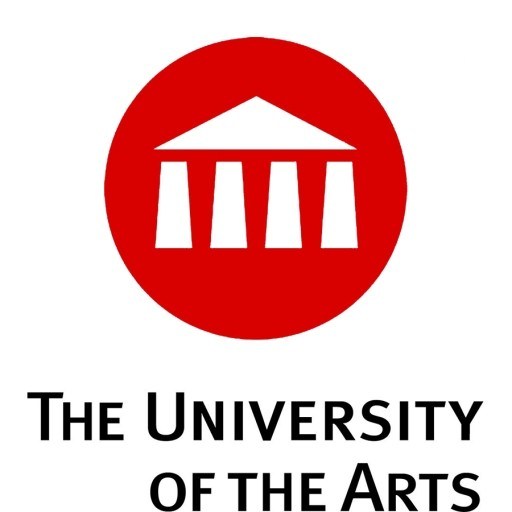Photos of university / #tallinnatehnikakorgkool
The Bachelor's degree programme in Service Innovation and Design at the University of Applied Sciences is a forward-thinking and comprehensive course designed to equip students with the necessary skills and knowledge to excel in the dynamic field of service development and management. This programme emphasizes a user-centric approach, integrating principles of design thinking, digital innovation, and strategic management to prepare graduates for the fast-paced and evolving service industries.
Throughout the course, students will delve into core topics such as service design, customer experience management, innovation processes, business model development, and digital transformation. The curriculum combines theoretical foundations with practical application, encouraging students to work on real-world projects and collaborate with industry partners. This hands-on methodology enhances their problem-solving abilities and fosters creative thinking essential for designing innovative services that meet the needs of diverse user groups.
The programme also focuses on developing interdisciplinary competencies, including project management, communication, and teamwork, ensuring graduates are equipped to lead and manage service innovation initiatives in various organizational contexts. Students will learn to analyze market trends, identify opportunities for new services, and implement design solutions that are both sustainable and economically viable.
Moreover, the programme prepares students for careers in diverse sectors such as tourism, healthcare, ICT, retail, and public services, reflecting the cross-sector applicability of service design principles. Graduates will be capable of working as service designers, innovation managers, user experience specialists, or consultants, among other roles.
Offered in a modern learning environment, the programme combines lectures, workshops, case studies, and internships, fostering an engaging and interactive educational experience. By the end of the programme, students will possess a comprehensive portfolio of projects demonstrating their capabilities to conceive, plan, and implement innovative service solutions that create value for both users and organizations. This qualification aims to empower graduates to lead service transformation efforts and contribute meaningfully to the development of innovative, user-oriented services in a global marketplace.
In the first semester the focus is on the technical translation. The courses include instruction in school subjects and life sciences as well as translation exercises on topics in these subjects. This is complemented by free speech production and software localization.
In the second semester technical translations and subject teaching will continue.There are also specialist language writing and free professional language production in the Erstfachsprache. In the second semester and the classes will start in the new, third language.
The third semester focuses on project-oriented and multi-language management as well as foreign language teaching methodology.
The fourth semester is dedicated to the master thesis. However, it is offered to financial planning, leadership and quality management, and a module.
Each semester, in addition to the regular courses specialized academic elective modules are offered. Here, for example, seminars and workshops on film translation or linguistic topics can be assigned.
A full-time semester is 30 credits, normally 24 hours per week teaching.
Program requirements for the Bachelor's degree in Service Innovation and Design at the University of Applied Sciences typically include a combination of academic prerequisites, language proficiency, and other criteria. Applicants are generally expected to have completed secondary education that qualifies for university admission, with a focus on subjects such as mathematics, social sciences, and technology to demonstrate foundational knowledge relevant to service innovation. Proficiency in English is required, often demonstrated through standardized tests like TOEFL or IELTS, ensuring students can effectively engage with course materials and participate in international projects. Additionally, some programs may request a motivation letter or personal statement outlining the applicant's interest and motivation for pursuing service innovation and design, as well as relevant experiences or skills. Work experience in related fields, such as customer service, design, or business management, can be advantageous but is not always mandatory. The university may also conduct interviews or assessments to evaluate applicants' creativity, problem-solving skills, and potential for success in a challenging academic environment focused on innovative service solutions. Applicants with a background in business administration, engineering, or information technology may find their skills highly relevant and beneficial for admission. The program emphasizes interdisciplinary knowledge, critical thinking, and practical skills, thus applicants should demonstrate a genuine interest and commitment to developing innovative service concepts and designing user-centered solutions. Familiarity with digital tools, design thinking approaches, and service modeling can enhance an applicant’s profile. The university aims to select students who are motivated to contribute to the evolving landscape of service industries through innovative thinking and practical application. Overall, the admission process assesses academic readiness, language skills, motivation, and relevant experience to ensure candidates are well-prepared to undertake rigorous coursework and contribute to the dynamic field of service innovation and design.
The financing of the Service Innovation and Design program at the University of Applied Sciences is structured to provide students with accessible and supportive funding options. As a part of the university's commitment to fostering innovation and practical skills, the program offers various financial aid opportunities, including government scholarships, grants, and potential employer sponsorships. Students are encouraged to explore national and regional funding schemes designed for higher education, which can cover tuition fees and living expenses. The university also provides information about student loans and bursaries to support both domestic and international students. Additionally, there may be fee waivers available for certain categories of students, such as those demonstrating financial need or excellence. The program's cost structure is aligned with comparable offerings at the university, ensuring affordability and value for students pursuing careers in service innovation and design. International students can access specific scholarships aimed at attracting talent globally, facilitating their participation in the program without financial barriers. Funding considerations are an important part of the admissions process, with detailed advice available from the university’s student finance office. Overall, the program seeks to ensure that financial constraints do not hinder motivated individuals from developing their expertise in service innovation and design, promoting inclusivity and equal opportunity in higher education.
The Service Innovation and Design program at the University of Applied Sciences is a forward-thinking degree designed to equip students with the skills and knowledge necessary to thrive in the dynamic field of service development and management. This interdisciplinary program combines elements of business, design, technology, and human-centered approaches to prepare graduates for roles that require creative problem-solving and strategic thinking. Throughout the course of study, students explore various facets of service innovation, including user experience design, service process optimization, and the implementation of innovative business models.
The curriculum emphasizes practical applications and real-world projects, encouraging students to develop a comprehensive understanding of how to create, assess, and improve services across diverse industries. Core courses typically cover service design methods, digital transformation, customer-centered innovation, and service marketing. Additionally, students learn about emerging technologies such as digital platforms, data analytics, and automation, which are increasingly significant in shaping modern service landscapes. The program also includes opportunities for internships and collaborations with industry partners, providing valuable insights and hands-on experience.
Graduates of the Service Innovation and Design program are well-prepared for careers in consulting, service management, design agencies, and within innovative startups. They can pursue roles such as service designer, experience manager, innovation consultant, or product manager. The program’s focus on creativity, strategic thinking, and technological fluency makes it suitable for students interested in designing consumer-centric solutions that add value to organizations and enhance user satisfaction.
Moreover, the program fosters interdisciplinary collaboration and encourages students to develop entrepreneurial skills, enabling them to initiate new service concepts or improve existing ones effectively. Students are also trained in project management and communication skills, essential for leading initiatives within complex organizational environments. With a curriculum continuously updated to reflect the latest trends and technological advancements, this program aims to ensure that graduates remain competitive and innovative in the fast-evolving service sector. Upon completion, students are awarded a recognized degree, opening doors to a wide range of opportunities in both established companies and emerging ventures worldwide.







